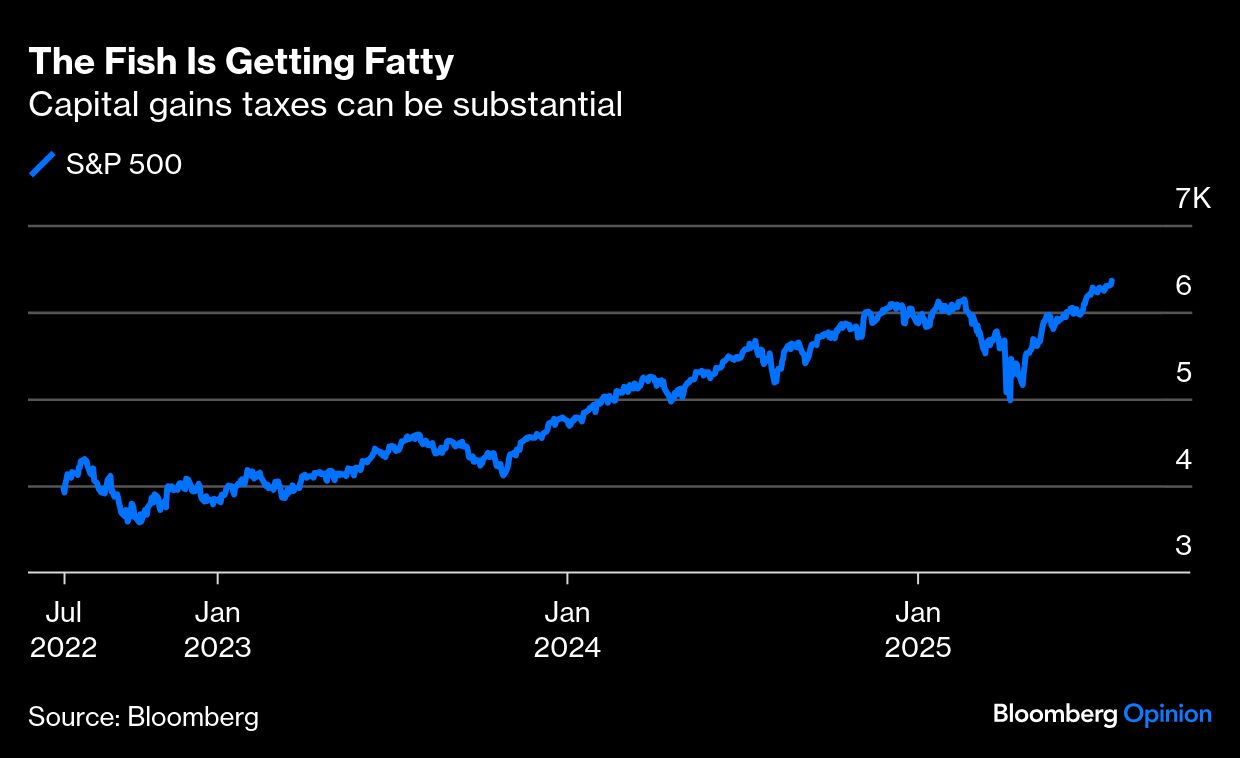
You can't go broke paying capital gains taxes, but you will feel the pinch — and for mainland Chinese with sizable overseas investments, a bit of apprehension.
Chinese authorities have been contacting residents who trade US and Hong Kong stocks, asking them to declare their earnings and pay tax liabilities. A 20% levy is applied to dividend income as well as annual net stock trading profits.
Many were surprised even though they shouldn't have been. Tax residents, usually defined as people who spend at least 183 days a year in the mainland, have been required to pay taxes on their global income for decades. However, until recently, there has hardly been any enforcement.
This begs the question of why now. After all, China has long had insights into its residents' offshore accounts. In 2018, Beijing implemented the Organisation for Economic Co-operation and Development's Common Reporting Standard, joining forces with other governments to catch cross-border tax evasion. In Hong Kong, for instance, if banks ascertain that a client has tax residence in the mainland, they need to share information, including their account balance and interest earned, with the local tax authority, which in turn will pass on that data to China.
No doubt, the government needs money. Beijing has raised this year's general budget deficit to the highest in more than three decades, as it ramps up stimulus spending while tax revenue sags amid a weak economy. But more importantly, this is a great time to collect overseas capital gains taxes. The fish is getting fatty and complacent, making it a great catch, to put it simply.
Just look at how well the US stock market has done. In just two and half years, the S&P 500 Index has gained more than 60%. Had China collected global taxes earlier, those with large US stock holdings would have been a lot more scrupulous with their residency, spending less time in the mainland or emigrating entirely.

Meanwhile, this aggressive tax enforcement comes at little cost to the capital markets that Beijing wants to develop. Mainland Chinese who purchase Hong Kong-listed shares through the stock connect program are exempted from capital gains taxes, at least until 2027. This strong southbound inflow underpins this year's rally. Residents trading stocks listed in the mainland don't need to pay, either.
It's thus no surprise that those who got repeated calls from local tax authorities are crying foul. In addition to the 20% levy, they seem unable to carry forward investment losses from previous years, unlike what Americans can do in their filings. But rules are rules, even though they are not consistently enforced.
After a long US bull run, minimizing capital gains taxes is on many investors' minds. Clever tactics, such as using exchange-traded funds, or ETFs, are deployed to help the rich reduce the bill. For the Chinese who are caught off guard, there's not much to do other than to pay up. Beijing now wants in.
Essential Business Intelligence, Continuous LIVE TV, Sharp Market Insights, Practical Personal Finance Advice and Latest Stories — On NDTV Profit.























